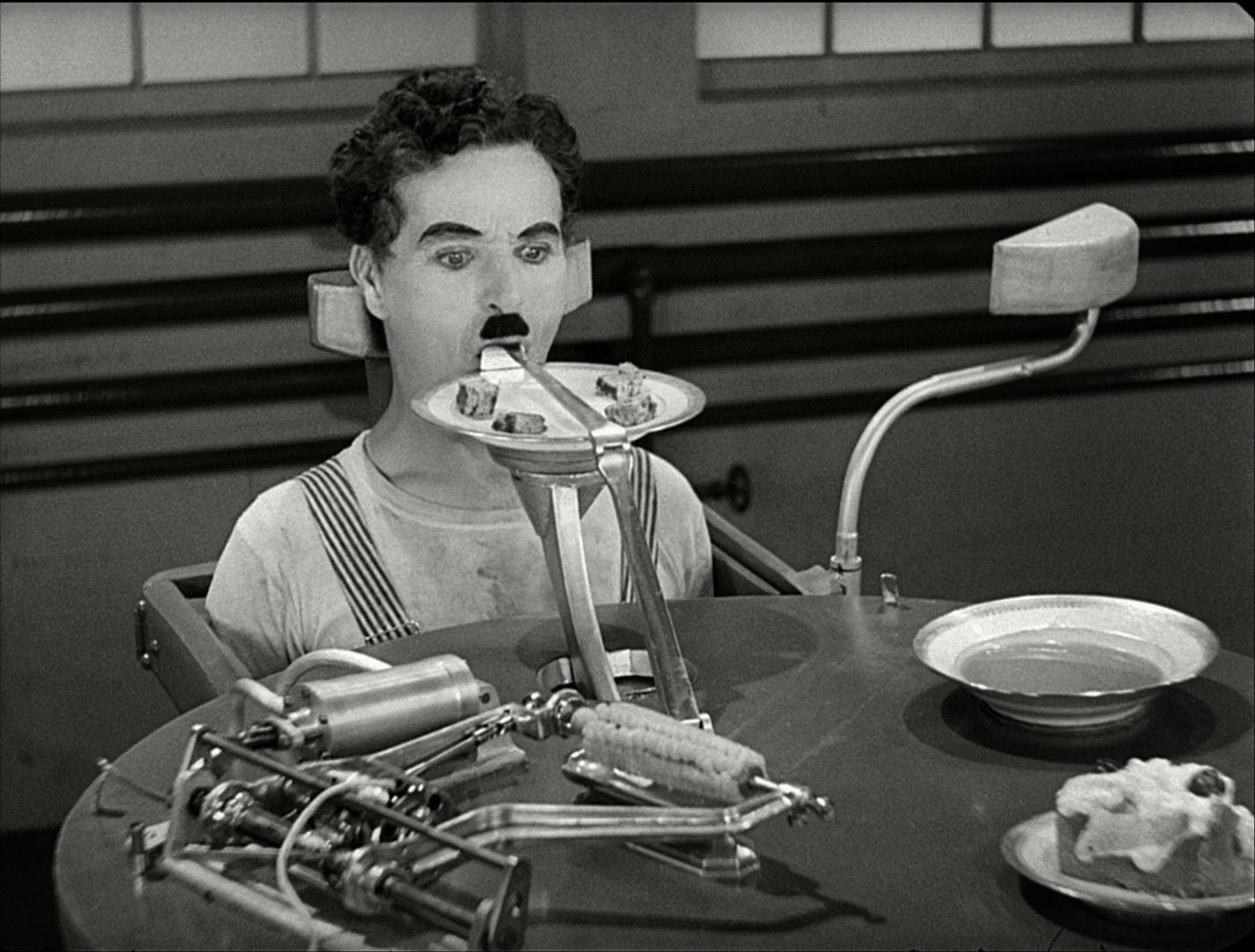What is it good to do for ourselves, even if a machine can do it for us?
A conversation with L.M. Sacasas on when to take the long way round
If you’ve been reading this newsletter for a while, you’ll know I’m influenced by the work of
. If you haven’t, well—now you do. Michael - as he’s known off the byline - writes beautifully about human flourishing and the moral shape of our technological world in his newsletter . It’s the kind of writing that makes you want to put your phone down and go read a book under a tree. Which, ironically, you were probably only reminded to do by reading it on your phone.So it was a joy to have him on the podcast, where we talked about a deceptively simple question that runs through much of his work:
What is good to do for ourselves, even if a machine can do it for us?
At first glance, it sounds like the sort of thing you might say just before buying a manual coffee grinder or taking up sourdough baking. But really, it’s a question about values. About purpose. About why we do what we do—and what we might lose if we hand it all over to the machines, however helpful, sleek, and disturbingly enthusiastic they may be.
Before we decide whether a bit of tech is helping or hindering us, we need to ask: what is the good that we are seeking? The answer isn’t always obvious, indeed it’s often buried beneath some rarely questioned assumptions. Listen to the podcast here, or on the youtube link below.
The one best means
Most of the time, we assume—usually correctly—that machines are there to make life easier. After all, it’s hard to get nostalgic about laundry days spent scrubbing shirts by hand. Most of us don’t dream of churning butter or hauling buckets of water. Efficiency, in many cases, is liberation. Especially if your female and much of this work historically fell to you.
But somewhere along the line, we’ve quietly started to believe that efficiency isn’t just useful—it’s the most important thing. Possibly the only important thing. Fast is better than slow. Easier is better than harder. More is better than enough.
The French sociologist Jacques Ellul called this principle “technique”—our obsession with finding “the one best means” for every task. He charts the way this value of efficiency leeched into every corner of modern life. By the 20th century, he argued, efficiency had become the ‘stake of the century’.
Jenny Odell, in her excellent book How to Do Nothing, describes it as “a colonisation of the self by capitalist ideas of productivity.” And honestly, if you’ve ever felt guilty for just sitting in the sun doing absolutely nothing, you’ve probably been colonised.
Deprivations of technology
Technology often gives with one hand, while taking with the other. What it offers is usually flashy and immediate. What it steals is quieter—more like something you forgot you had, until one day you wonder where it went.
We discussed some of these things in the podcast conversation, several of which I’ve found cause to write about previously. Instead of relaying them here, I’ll point towards three ways I think efficiency can be a destructive force, all of which we talked about in our conversation. Click on the links if you fancy a tangential wonder down any of these related avenues.
A previous conversation that still echoes for me is the one with the Oliver Burkeman. He makes an astute observation: our obsession with efficiency tricks us into believing we might somehow outrun the limits of being human—and then punishes us with frustration when we inevitably can't. It’s why waiting two minutes for the microwave can feel more maddening than waiting two hours for the oven. Time, it turns out, bends differently depending on what we expect from it. Oliver’s deeper invitation is to stop resisting our limits and start living within them—to embrace slowness, friction, even a bit of inefficiency. There’s a strange kind of freedom in that surrender. Not progress, perhaps—but presence.
Questions, Not Prescriptions
Those are some of my thoughts, they may not work for you. And that’s fine. What I appreciate about L.M. Sacasas is that he is thought provoking without being judgemental. He won’t shame you into becoming a Luddite or guilt-trip you into writing longhand by candlelight. Instead, he invites you to ask better questions.
“I tend to prefer questions rather than prescriptions…Because in many cases, we might arrive at different calculations of what it is good for us to do, given our particular circumstances.”
That humility is rare these days. And, I think, essential.
So—what’s good for you to do, even if a machine can do it faster, cheaper, more efficiently? I don’t have your answers. But I think they’re worth asking.
I recommend not only listening to the episode and subscribing to his Substack, but taking this question up with friends and family over dinner or down at the pub. I have done so several times already, and found it offers up fresh insights each time.
Next week, you’ll be graced by yet another compelling thinker from the US, the influential psychologist
. In it, we talk about play, and why it’s so essential to healthy psychological development in young people. We also disagree over smartphones. Here’s a clip:Until then, I hope you have a good week discerning the good, and perhaps sometimes even taking the long way round.



Enjoying listening to the podcast - subscribed on Pocket Casts so I don't miss any more!